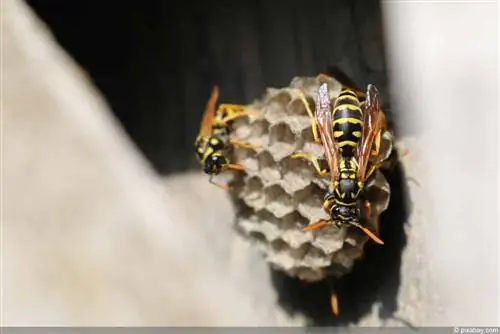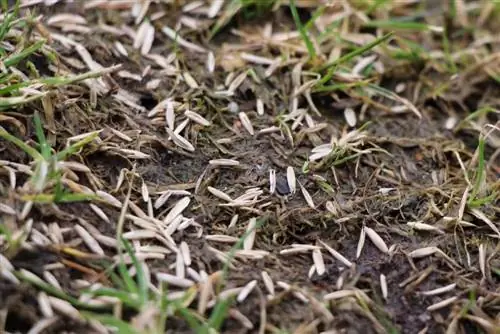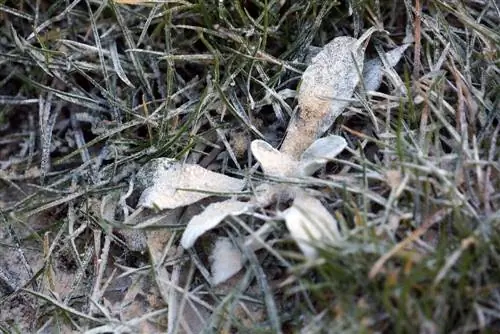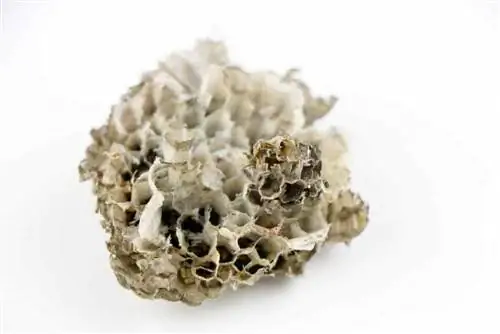- Author admin [email protected].
- Public 2023-12-17 03:39.
- Last modified 2025-01-24 12:45.
Summer in the garden could be so beautiful if there were no wasps. In fact, the animals trigger panic reactions in many people. This shouldn't come as a surprise; after all, there are true horror stories circulating about the consequences of a wasp sting. Yes, there are dangers, but they are usually exaggerated. But how does wasp poison work? How long does wasp venom last? And how quickly is wasp venom broken down?
Composition of wasp poison
The poison that a wasp injects into the wound when it stings is made up of several different components. Essentially the following three groups can be distinguished:
- Enzymes
- Peptides
- Biogenic amines
Each of these groups includes a variety of substances that act on the skin and tissue of the victim who has been stabbed. The following biogenic amines alone were found in wasp venom:
- Acetylcholine
- Adrenaline
- Dopamine
- Histamine
- Norepinephrine
- Serotonin (5-Hydroxytryptamine)
Each of these substances has a painful effect. The peptide kinin also causes considerable pain. Enzymes such as phospholipase A1, phospholipase and hyaluronidase ensure that the cell walls in the tissue become permeable and thus enable the poison to spread easily. Incidentally, these enzymes are also the ones that sometimes cause significant allergic reactions if the person is predisposed to do so.
Note:
With a single prick, 0.19 mg (dry weight) is delivered directly into the wound via the stinger's poison channel. With a share of almost five percent, acetylcholine, which is not found in such a high concentration in any other living being, occupies a leading position.
How does wasp poison work?
After a wasp sting, the body reacts immediately. He typically reacts to this with pain, itching and redness of the skin. The injury to the skin caused by the sting only plays a role in that the poison gets into the tissue through it. The peptides or polypeptides in the poison are primarily responsible for the painful effect. Although a wasp sting is unpleasant for a he althy person, it usually does not cause any he alth problems. To put him in serious danger, he would have to be stung by hundreds of wasps at the same time. However, the situation is different for small children, allergy sufferers and weakened people. Here the consequences can be quite serious. The spectrum ranges from significant breathing difficulties to cardiovascular failure.
Tip:
You should not be in the immediate vicinity of a wasp nest, as this usually leads to several stings at the same time. They aren't really dangerous for he althy people, but they are significantly more unpleasant than a single sting.
How long does wasp poison last?
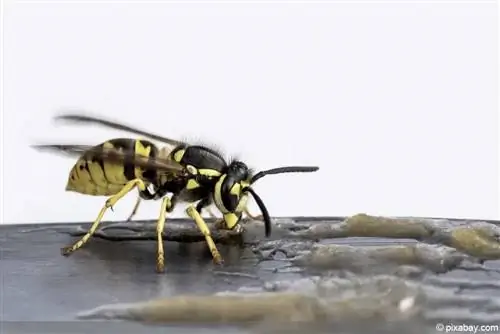
Unfortunately, the question cannot be answered clearly, just like the question: How quickly is wasp venom broken down? It always depends on the constitution and disposition of the person who was bitten. Basically, it can be said that the wasp venom is broken down in the body relatively quickly and the effect does not last particularly long. This explicitly applies to all components of the poison's composition. The respective metabolism of the affected person is largely responsible for this. As is well known, this differs considerably in some cases. It is important to know that the poison does not accumulate in the tissue and is not stored there.
Allergy
Many people fear that after a wasp sting they will develop an allergy to the wasp venom and then be exposed to greater danger if they are stung again. However, this is complete nonsense and cannot be medically proven. What is actually true is that every sting triggers allergic reactions such as itching or skin irritation in practically every person. But this has nothing to do with an allergy. In fact, the likelihood of an allergy to wasp venom is extremely low. Statistical studies show that only around four percent of all people have a corresponding disposition. Most of the time, these people are allergic to every type of insect venom. The allergy is not limited to the wasps alone.
Awareness
Even if the likelihood of an allergy to insect venom is very low, it cannot be ruled out. As a rule, those affected do not know that they have a corresponding predisposition. The effect that a wasp sting causes can therefore be an important indication and should be examined carefully. The following symptoms are noticeable:
- very severe skin redness
- large skin irritations
- severe swelling
- Training hives
- Breathing problems
- Cardiovascular problems
If any of these symptoms occur, we definitely recommend seeing a doctor or an allergist. He will then usually carry out a so-called sensitization. In this way it can be found out whether an allergy exists and to which substances exactly this allergy relates. If an allergy to insect venom is discovered, immunization can then be initiated.
Note:
Symptoms such as swelling and hives do not necessarily have to occur directly at the injection site. If you find them on other parts of the body after the bite, this is usually a clear indication of an allergy.
Immunization
When sensitization occurs, the body is exposed to various substances through the skin. Depending on the reaction, it can be determined whether a corresponding allergy is present. Immunization against these substances will then usually take place. This is a form of therapy that means that the body's immune system no longer reacts so severely to insect orWasp sting reacts. As a result, there is a significant reduction in symptoms or even an almost complete absence. But a wasp sting is still painful.

